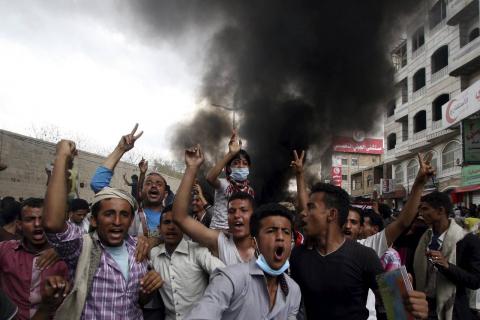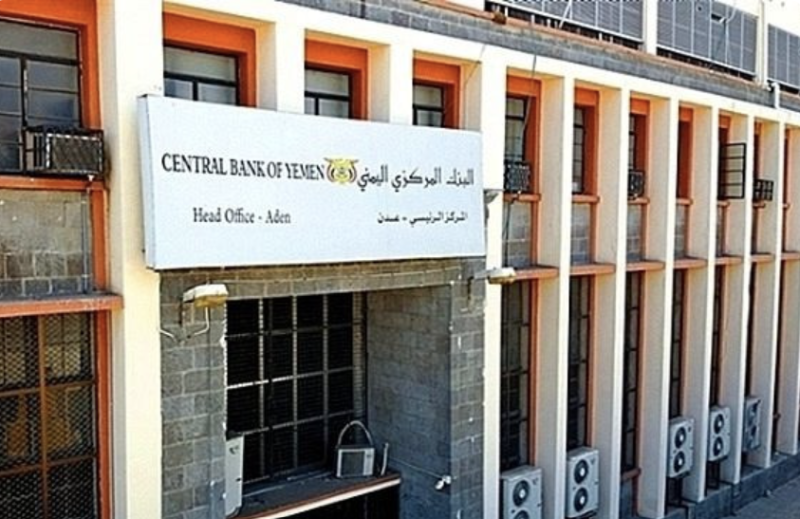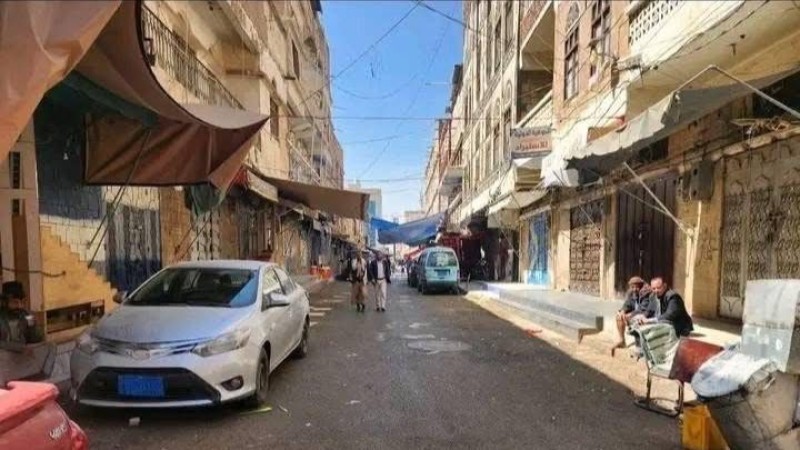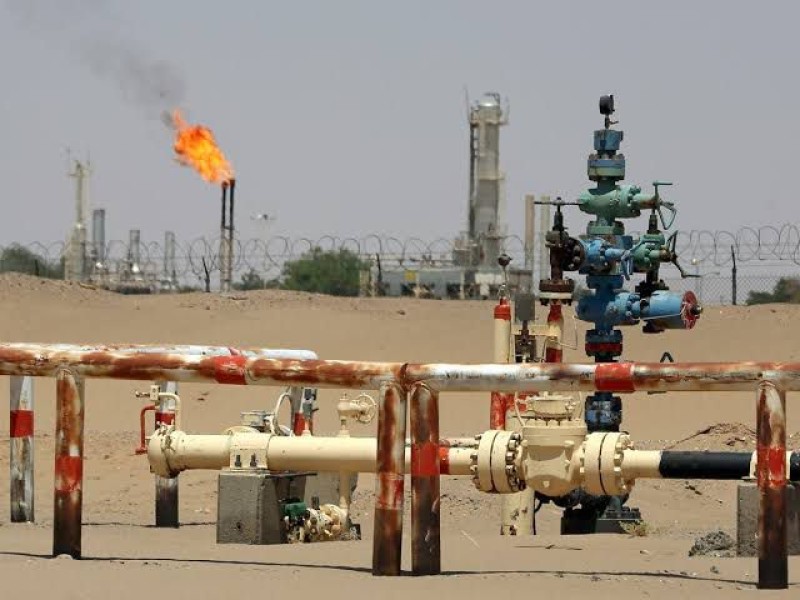Houthi Gunmen Fire on Demonstrators in Yemeni City


Houthi gunmen fired live ammunition and tear gas on Monday into crowds of demonstrators in Taiz, Yemen’s third-largest city, wounding at least seven people and pushing the Arabian Peninsula country ever closer to all-out civil war.
The Houthis had already taken over the airport and some government buildings in Taiz and erected checkpoints in the southern city when the violence flared, said local government officials and protest organizers, who reported the casualties.
The shootings added to the alarm sounded Sunday by United Nations envoy to Yemen who said the country was in danger of becoming another Syria, Libya or Iraq. The swelling turmoil has already forced the U.S. to suspend military operations and withdraw its personnel from the country, where al Qaeda and other jihadist groups are vying for pre-eminence.
One of those groups appears to be a self-described local affiliate of Islamic State that claimed responsibility for three bomb attacks on Shiite Muslim holy sites on Friday that killed 152 people.
The Houthis, a movement that represents some followers of the Zaidi offshoot of Shiism, seized control of streets of San’a in September and took over the government five months later. Their push southward has been opposed by Sunni tribes and supporters of President Abed Rabbo Mansour Hadi, who fled the capital after his government was dissolved and is holed up on the southern port city of Aden, 100 miles from Taiz.
More bloodshed loomed late Monday. A Taiz security committee headed by the city’s governor, ordered Houthi forces to remove their checkpoints in the city by 8 p.m. local time or have them removed by force, according to a committee member.
“We will avoid bloodshed in the province,” the committee member said. “If the Houthis don't cooperate, the entire province will head to the streets and force the Houthis to remove their checkpoints.”
Citing the examples of Iraq and Syria, Houthi leader Abdel Malik Al Houthi warned in a speech Sunday that Yemen was at risk of being engulfed by sectarian warfare.
Mr. Houthi said the move into Taiz wasn’t an attack on the people of southern Yemen but an attempt to root out elements of al Qaeda in the Arabian Peninsula, or AQAP, the group’s local branch. He played down concern that the Houthis aimed to seize territory.
Another senior Houthi official, Abdullah Shaban, accused terrorists of trying to use Taiz as a staging ground to launch attacks in the surrounding area.
Yemen’s militant jihadist groups are also important players in the building conflict. Both the Houthis and Mr. Hadi oppose AQAP and have fought military campaigns against the group. The U.S. has cooperated with Mr. Hadi on counterterrorism efforts, which include drone strikes.
The claim of responsibility for Friday’s attacks by San’a Province, a group purporting to be a Yemeni affiliate of Islamic State, has added even more fuel to the Yemeni tinderbox. The bombings hit two Zaidi Shiite mosques in San’a and a Houthi compound in Saada province. The group hadn’t previously carried out any known attacks in Yemen.
Another group purporting to be a Yemeni division of Islamic State claimed responsibility on Monday for the killing of 29 government security personnel in a southern province, according to the SITE Intelligence Group, the U.S.-based group that monitors jihadist websites.
Yemeni security officials declined to confirm SITE’s report, saying there was no proof that Islamic State had carried out the attack.
At least a dozen countries, including the U.S., Saudi Arabia and Turkey, have closed embassies in San’a because of the deteriorating security situation. U.S. officials confirmed Sunday that the country’s remaining 100 military personnel had been evacuated.
WSJ

Aden — The United States Ambassador to Yemen underscored the critical importance of safeguarding the independence of the Central Bank of Yeme…

Sana’a – A new international report has confirmed that Houthi militias continue to escalate economic measures against the commercial se…

Aden — For three decades prior to the outbreak of war, Yemen’s oil and natural gas sector played a decisive role in shaping the country…